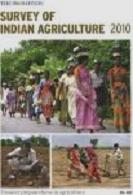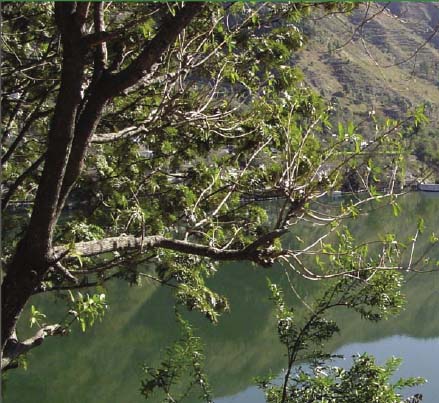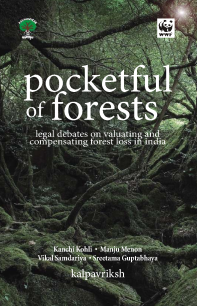/topics/ecology-and-environment
Ecology and Environment
Low carbon strategies for inclusive growth - An interim report of the Planning Commission's expert group
Posted on 28 Jun, 2011 11:44 PM Some policy measures implied by various options have also been indicated. The main sectors examined in the report are power, transport, industry, buildings and forestry.
Some policy measures implied by various options have also been indicated. The main sectors examined in the report are power, transport, industry, buildings and forestry.
Increased concentrations of Green House Gases (GHGs) and the overall warming of the atmosphere has resulted in changing rainfall patterns, disruption in hydrological cycles, melting of ice caps and glaciers, rise in sea levels, and increase in frequency and intensity of extreme events such as heavy precipitation and cyclonic activities.
These have in turn had serious impact on sustainability of water resources, agriculture, forests and ecosystems, affecting the well being of billions of people on earth. Widespread melting of glaciers and snow cover will reduce melt water from major mountain ranges (e.g. Hindu Kush, Himalaya, Andes) where more than one billion people currently live.
The lake and the well, part of a water master plan - Article by S. Vishwanath about Jakkur Lake in Bangalore
Posted on 28 Jun, 2011 05:41 PMAuthor: S. Vishwanath
Video courtesy: Zenrainman
When a city adds nearly 3 million people in a span of a decade ensuring water supply to its citizens seems a huge challenge. One critical thing to realize is that the mind-set of ‘providing’ water has to change and become one of ensuring that citizens can access water of requisite quality.
Release of the latest issue of The Hindu's annual publication - Survey of Indian Agriculture 2010
Posted on 27 Jun, 2011 12:41 PM The survey aims to cover major crops and suggestions to farmers on how to take preventive steps to avoid yield loss. There will also be a special article on improvement in living conditions of the rural people.
The survey aims to cover major crops and suggestions to farmers on how to take preventive steps to avoid yield loss. There will also be a special article on improvement in living conditions of the rural people.
Contents
Section-1
Overview:
Enhancing the disaster resilience of agriculture
Prof. M.S. Swaminathan
Drought:
Preparedness to face drought challenges
Dr. V. Rajagopal
Online survey by NEERI in cooperation with University of Liverpool on the functioning of the Environmental Impact Assessment (EIA) in India and the UK
Posted on 27 Jun, 2011 11:52 AMNational Environment Engineering Research Institute (NEERI) in association with University of Liverpool (UK) is conducting online survey on the functioning of the Environmental Impact Assessment (EIA) in India and the UK. The purpose of the survey is to reflect on the experiences of professionals with EIA in the past and also to look ahead to the future role of EIA.
The first three parts of the survey is based on what your experiences of EIA are while the fourth part relates to what EIA should be like. The survey is anonymous and completing it will take approximately 10 to 15 minutes of your time. Please note the ‘save’ option in the survey does not actually let you save and come back to the survey later.
An Indian perspective on the conservation and management of lakes – A report by Ministry of Environment and Forests
Posted on 25 Jun, 2011 10:43 PM
This publication will serve to be useful reference material for policymakers, implementing agencies, environmentalists and those who enjoy the beauty and diversity of India’s water bodies.
Lakes are not only a source of water and livelihood for many of our populations, but they also support a large proportion of our biodiversity. The wetlands, shallower peripheral areas of large lakes, provide breeding and nesting grounds to huge population of birds, many of which migrate to India from as far north as Siberia.
Mining havoc: Impact of mining on water resources in Goa - Article from Dams, Rivers and People
Posted on 25 Jun, 2011 02:02 PM
Pumping of water from Cavrem Sheikh Salim mine, severely lowering groundwater table in the village
Image courtesy: Sebastian Rodriguez, Mand Goa
Taking steps toward marine and coastal ecosystem based management: An introductory guide by UNEP
Posted on 25 Jun, 2011 09:28 AMAn important aim of this guide is to facilitate the implementation of UNEP’s overarching Ecosystem Management Programme and new Marine and Coastal Strategy in countries and regions in line with its Medium Term Strategy 2010-13.
Assessment study of impact and sustainability of Nirmal Gram Puraskar – A report by CMS Environment
Posted on 24 Jun, 2011 11:02 PMNGP was initiated in Oct 2003 to encourage Panchayati Raj Institutions (PRIs), block and districts to take up sanitation promotion, a post achievement, award-cum-fiscal incentive scheme. The eligibility criteria for the PRIs to receive NGP include: Gram Panchayats, Blocks and Districts, which achieve 100 per cent sanitation coverage in terms of: (1) 100 per cent sanitation coverage of individual households (2) 100 per cent school and anganwadis sanitation coverage (3) Free from open defecation and (4) Clean environment maintenance (liquid and solid waste management).
Desh bachao - Desh banao' – Public convention to save democracy, National Alliance of People's Movements, June 27, 2011, New Delhi
Posted on 22 Jun, 2011 01:55 PMOrganizer: National Alliance of People's Movements
Venue: Constitution Club, Rafi Marg, New Delhi
Description:
This public convention is an attempt to once again allow all of us to join the dots that link our struggles against deeply entrenched structures of oppression and corruption in our society with a view towards total revolution.






